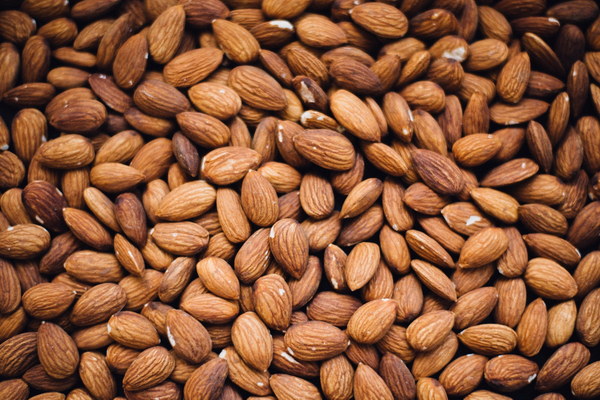Unveiling the Power of Dampness-Relieving Herbs in Suppressing Tumors
In recent years, the medical world has been exploring the potential of natural remedies in the fight against cancer. One such approach involves the use of dampness-relieving herbs, which have been traditionally used in Chinese medicine to treat a variety of ailments. This article delves into the concept of dampness in traditional Chinese medicine and explores how dampness-relieving herbs may help in suppressing tumors.
Understanding Dampness in Traditional Chinese Medicine
In traditional Chinese medicine (TCM), dampness is considered an internal imbalance that can lead to a host of health issues, including cancer. Dampness is often described as a substance that can accumulate in the body, leading to symptoms such as fatigue, weight gain, bloating, and joint pain. According to TCM, cancer is believed to arise from the accumulation of dampness combined with other factors, such as heat and stagnation.
The Role of Dampness-Relieving Herbs
Dampness-relieving herbs are a class of medicinal plants that are believed to help eliminate dampness from the body. These herbs can be taken in various forms, including teas, powders, and extracts. Some of the most commonly used dampness-relieving herbs include:
1. Poria cocos (Fu Ling): Known for its ability to absorb dampness and boost the immune system, poria cocos is often used in TCM to treat dampness-related conditions.
2. Atractylodes macrocephala (Cang Zhu): This herb is believed to transform dampness into energy, thus helping to alleviate symptoms such as fatigue and bloating.
3. Coptis chinensis (Huang Lian): Known for its anti-inflammatory and anti-tumor properties, copitris chinensis is often used to address dampness combined with heat in TCM.
4. Phyllanthus urinaria (Bai Zhu): This herb is thought to help break up dampness and relieve symptoms such as bloating and joint pain.
How Dampness-Relieving Herbs May Suppress Tumors
While more research is needed to fully understand the mechanisms behind dampness-relieving herbs and their effects on tumors, several potential mechanisms have been proposed:
1. Antioxidant Properties: Many dampness-relieving herbs have been found to possess antioxidant properties, which can help reduce the damage caused by free radicals and potentially suppress tumor growth.
2. Anti-Inflammatory Effects: Chronic inflammation has been linked to the development and progression of cancer. Dampness-relieving herbs, such as copitris chinensis, may help reduce inflammation and, in turn, suppress tumor growth.
3. Immune System Stimulation: Some dampness-relieving herbs, like poria cocos, are believed to boost the immune system. A strong immune system can help the body fight off cancer cells and prevent their growth.

4. Direct Antitumor Effects: Some studies have suggested that certain dampness-relieving herbs may have direct antitumor effects by inhibiting the growth and spread of cancer cells.
Conclusion
While dampness-relieving herbs have been used traditionally to address dampness-related issues, their potential in suppressing tumors remains an area of ongoing research. As more studies are conducted, it is possible that these natural remedies may become an important addition to the arsenal of cancer treatments. However, it is crucial for individuals considering the use of dampness-relieving herbs to consult with healthcare professionals to ensure safety and efficacy.









